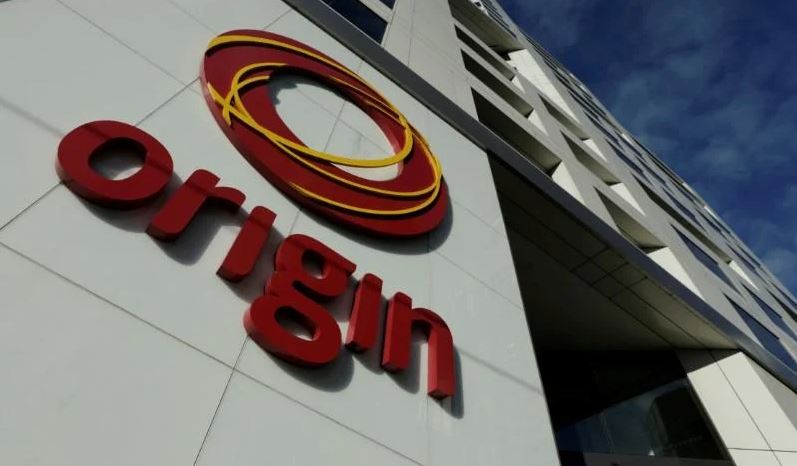The Australian Competition and Consumer Commission (ACCC) has granted authorisation for Canadian investment giant Brookfield to acquire Australia’s second largest energy generator and retailer, Origin Energy. While the ACCC flagged competition concerns stemming from Brookfield’s vertical integration, the regulator ultimately decided the public benefit of accelerating the energy transition outweighed potential detriments.
The board of Origin Energy gave the green light to Brookfield’s plan back in March, with Origin describing the ACCC’s decision as an “important milestone” in finalising the acquisition. That said, the deal still requires shareholder approval by at least 75% of the votes cast.
The ACCC focussed heavily on the what the deal would mean for Australia’s decarbonisation in its authorisation ruling, noting that its process included two distinct assessments: whether the proposal would substantially lessen competition and whether public benefits would outweigh the likely public detriments.
“On the first limb of the test, we are not satisfied that the proposed acquisition would not be likely to substantially lessen competition. However, after a detailed review, we are satisfied that the proposed acquisition is likely to result in public benefits that would outweigh the likely public detriments,” ACCC Chair, Gina Cass-Gottlieb, said.
In June, Brookfield made its case to the ACCC and upped the amount of money it said it would invest in decarbonising Origin, flagging figures as high as $30 billion (USD 20 billion), up from the previous $20 billion plan. The Canadian company says it will use that capital to develop up to 14 GW of new renewable generation and storage assets within the Origin Energy business by 2033, flagging its international supply chain and technology partnerships as enablers of its ambitious plans. Brookfield, a global asset manager, has approximately USD 850 billion ($1.32 trillion) worth of assets under management.
In terms of likely detriments, concerns essentially boil down to Brookfield’s controlling stake in AusNet, which owns significant energy network infrastructure in Victoria controlling its high-voltage electricity transmission system. “We are particularly concerned with Brookfield’s ability to influence AusNet to obstruct rival generators from connecting to the transmission grid or operate the transmission network to favour Origin’s generators,” Cass-Gottlieb said.
Despite concerns, the ACCC deemed mitigating factors enough to “limit obvious or extreme discrimination.”
“These include AEMO’s Victorian-specific planning and connection roles in relation to the transmission network, the different ownership of the Brookfield funds making the investments, the ongoing role of regulators, the role of minority investors in the relevant entities and the enforceable undertakings given by Brookfield and AusNet to meet conditions imposed by the ACCC,” it said.
Brookfield also holds a 50% stake in smart metering company Intellihub.
More hurdles to clear
The Origin shareholder vote is expected around the end of the year or beginning of 2024, but recently Origin Energy’s biggest shareholder, Australian Super, said it felt Origin’s shares had been undervalued, suggesting the $18.7 billion bid figure was not high enough. Australian Super has also recently raised its stake in Origin and now owns around 14%, meaning it controls a big enough stake to impact the shareholder vote.
Australia has seen a number of high-profile and novel corporate plays in the last 18 months, with Brookfield and billionaire Mike Cannon-Brookes initially teaming up to bid for Australia’s biggest “gentailer” AGL. After that play was unsuccessful, Brookfield refocused this trojan horse strategy on Origin, meanwhile Cannon-Brookes bought a controlling stake in AGL to thwart its demerger plan. This is to say, even the corporate governance side of Australia’s energy industry has been in a state of major upheaval.
Finally, while the ACCC has given the greenlight for Brookfield to pursue its Origin vision, it noted the state of Australia’s grid might throw up technical problems. “Constraints within the electricity transmission network, particularly in the short-term, which may delay Brookfield’s ability to build renewable energy generation at the speed claimed,” Cass-Gottlieb said.
Brookfield’s tax avoidance
A largely overlooked facet of this story are the questions raised about Brookfield’s history of aggressive global tax dodging. Earlier this year, a report from the Centre for International Corporate Tax Accountability & Research flagged Brookfield’s tax avoidance on a global scale.
Independent outlet Michael West Media has also published multiple articles and investigations into the company’s tax history in Australia.
This content is protected by copyright and may not be reused. If you want to cooperate with us and would like to reuse some of our content, please contact: editors@pv-magazine.com.









By submitting this form you agree to pv magazine using your data for the purposes of publishing your comment.
Your personal data will only be disclosed or otherwise transmitted to third parties for the purposes of spam filtering or if this is necessary for technical maintenance of the website. Any other transfer to third parties will not take place unless this is justified on the basis of applicable data protection regulations or if pv magazine is legally obliged to do so.
You may revoke this consent at any time with effect for the future, in which case your personal data will be deleted immediately. Otherwise, your data will be deleted if pv magazine has processed your request or the purpose of data storage is fulfilled.
Further information on data privacy can be found in our Data Protection Policy.